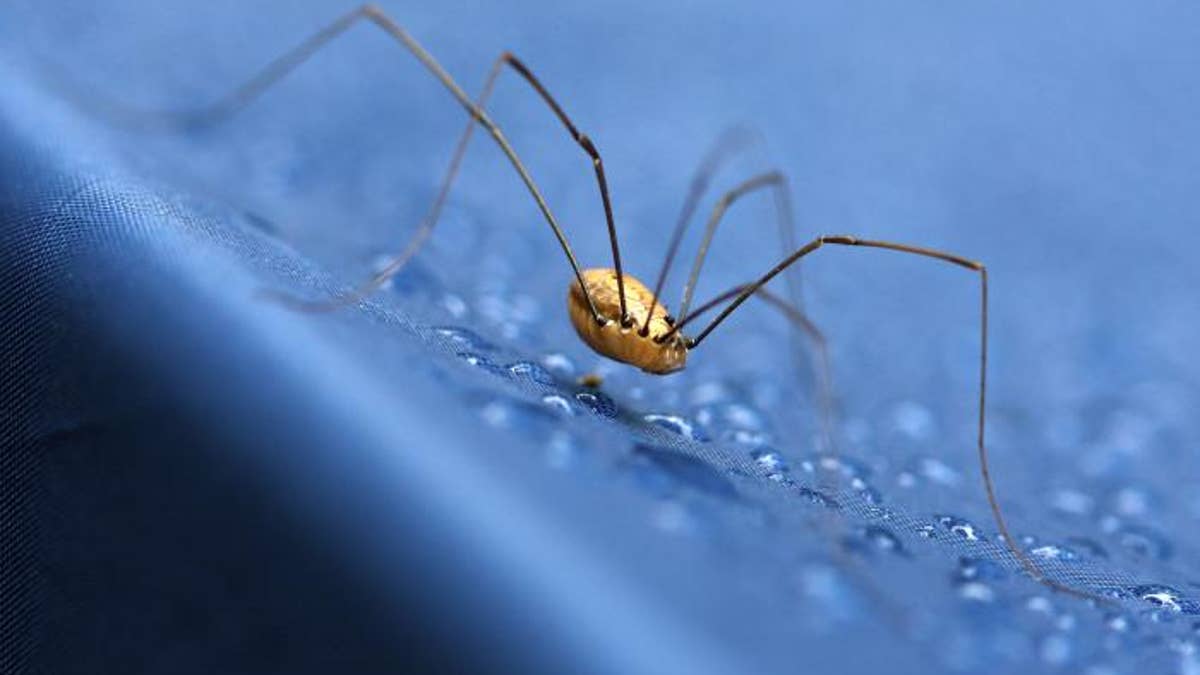
As clean as your home may be, it still hosts a variety of insects — and some of the most common are spiders.
Which ones are you living with? Are they harmful? Should you try to get rid of them or are they earning their keep by chowing down on pesky bugs like mosquitoes and flies?
Here's everything you need to know about co-existing with these curious creatures:
TYPES OF HOUSE SPIDERS"There are many different species of spiders commonly found in homes," says This Old House Senior Editor Deborah Snoonian. Some of the most common include:
- Cellar spider, or "Daddy Long-legs" (Pholcidae)
- Cobweb spider (Parasteatoda tepidariorium)
- Brown recluse (Loxosceles reclusa)
- Black widow (Latrodectus)
- The Hobo, or "Funnel-web Spider" (Tegenaria agrestis)
- Sac spider (Clubiona trivialis)
- Jumping spider (Phidippus audax)
- Crab spider (Ozyptila praticola)
- Wolf spider (Hogna lenta)
WHERE SPIDERS HANG OUTNot surprisingly, spiders will set up camp wherever the food is. Noonian says some of their favorite nesting areas are in corners, dark spots, behind or underneath furniture, in cupboards, basements and garages — even in crevices on your home's exterior. Lights are another hot spot for arachnids, because the glow attracts flying insects.
WHAT DO THEY EAT? Spiders aren't picky. They generally enjoy a diet of crickets, moths, mosquitos, flies, and yes…even other spiders.
"Homes infested with German cockroaches and bedbugs, you will find spiders feeding on those as well," says Erin Monteagudo, an entomologist with leading New York City extermination firm Bell Environmental Services.
WHICH TO WATCH OUT FOR"Most spiders, even if they bite, are harmless to humans," says Snoonian. However getting bitten by a black widow, brown recluse, or hobo spider can have the most severe side effects.
"Bites from black widows can cause cramping, nausea, and respiratory problems," she explains. "Brown recluse bites can lead to necrosis (skin lesions) and sometimes take months to heal. Bites from the hobo spider, often confused for the brown recluse, are thought to cause necrosis as well."
However, Monteagudo says many doctors misdiagnose spider bites. "Spider bites should never be diagnosed without the offending spider being caught and being presented for identification," to rule out any potential underlying skin conditions.
TO KILL OR NOT TO KILL?If you suffer from arachnophobia, co-existing with spiders can be a challenge. Even though most house spiders are harmless to humans, sometimes they just have to go. Here's how to get rid of them safely:
- Vacuum. "The easiest spiders to deal with are those that build webs," says Monteagudo. She suggests using a vacuum to suck the spiders, their webs, and eggs away.
- Destroy right away. To properly dispose of them, Noonian advises emptying and destroying the contents of the vacuum bag right away, so that the eggs don't have a chance to hatch.
- Release them back into nature. If you want to get rid of a single spider or two, Noonian suggests, "Capture it in a glass and release it outside, several feet from your home. Then clean the area that it came from."
- Call an exterminator. If you're dealing with a black widow, brown recluse, or if they've reproduced to the point where they've become a nuisance, you'll need to take action. Noonian advises calling a professional exterminator. "They will know the right method for getting rid of them safely."
PREVENT HOUSE SPIDERS FROM RETURNING
- Manage what they eat. "If there's a large number of crickets or other insects in your basement, then it's best to try to control them instead of the spiders," Monteagudo says.
- Rethink your lighting. If the lighting around your home is attracting flying insects, Monteagudo suggests switching to yellow bulbs, or directing lighting towards the home instead of away.
- Keep it clean. To prevent spiders from nesting in your home, Noonian says it's important to clean popular nesting areas regularly, and seal crevices where they get in from outside with caulk or expandable spray foam.
- Don't give them a place to hide. Get rid of those old cardboard boxes in your basement and garage. Store your stuff in clear plastic bins instead.








































